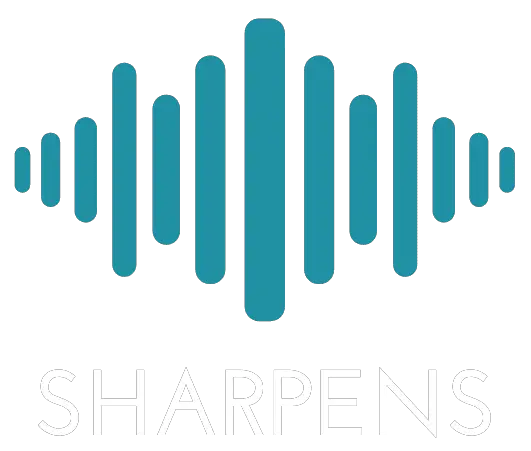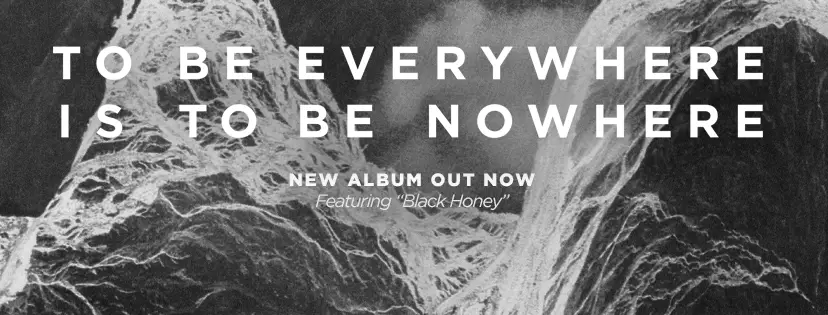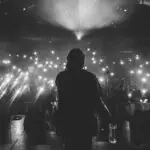Founded in 1998 in Irvine, California, Thrice has come a long way as a rock band whose versatility shines out through the various genres it plays. Post-hardcore, experimental rock, alternative rock, art rock, emo, and melodic hardcore are the genres that define Thrice’s musical explorations. The band was the brainchild of lead guitarist Teppei Teranishi and vocalist and guitarist Dustin Kensrue, both of who formed it during their high school days.
During the initial phase of their career, Thrice became known for their hard and fast music created by prominent and distorted guitar lines and distinct complex time signatures. The band’s second and third albums, namely The Illusion of Safety (2002) and their third album The Artist in the Ambulance (2003), embodied this style clearly. More experimental elements such as keyboards and electronic beats became a feature in their fourth album, Vheissu (2005).
After releasing their eighth album, Major/Minor, in September 2011, Thrice announced a hiatus after their final tour. However, after attending a concert of Brand New, Teranishi and Kensrue decided to revive the band in 2015.
A year later, To Be Everywhere Is to Be Nowhere, was released as Thrice’s first post-reunion album. It is their ninth studio album which was written during their period of hiatus when most of Thrice’s members were residing outside California or in other cities within the state. Most of the album was primarily written using demo recordings and file-sharing ideas, meaning the members saw a transition from a manual to a virtual writing process.
In May 2016, after announcing the release of To Be Everywhere Is to Be Nowhere, Thrice released Black Honey as one of the two singles as a prelude to the album. The second was Hurricane, which they released in April 2017. Black Honey lyrics’ meaning has a political angle, touching upon the consequence of the United States’ involvement in the Middle East that led to the formation of the Islamic State of Iraq and the Levant.
What’s the story behind the title?
Black Honey kicks off with Teranishi’s guitar riff followed by Kensrue’s vocals. Let’s not forget Eddie Breckenridge’s bass, which drives the song forward, keeping listeners on a pleasant edge that makes them want to play it on loop.
The song’s music video, directed by a media group called Y2K, hit the charts on May 17, 2016. It featured a boy (played by Jesse James Baldwin) on a road trip. He was sitting in the passenger seat of a car. The scenes showed various people driving the car, including Jennifer Lee Laks, who played the boy’s mother, and Thrice members.
The boy steps out of the car and goes into a field, where the sun possesses him. The boy’s eyes glisten into a luminescent blue until his entirety raptures into white light. Black honey drips from the leaves and fruits as the video ends with an aerial shot of the lonesome boy rambling through the field. It’s perhaps the most viewed music video of Thrice, garnering more than 41 million views.
“Black Honey” stems from Kensrue’s imagery of a man swatting at a swarm of bees to collect honey and becoming confused when stung by them. Kensrue felt it was a fitting metaphor that reflected much of the United States’ foreign policy when it came to their involvement in the Middle East. “Black honey” is a euphemism for oil—something that the United States has been striving to acquire across the globe.
Many fans have interpreted the Black Honey lyrics’ meaning in different ways. Kensrue once mentioned that the song was written to highlight the narcissistic approach that the US has towards its foreign policy. However, a deeper analysis reveals that it can be easily applied to any situation where we act self-indulgently and become addicted to our own power. This leads us to keep repeating actions that reap us nothing valuable.
Read on to know the Black Honey lyrics’ meaning here:

Verse 1- What does it mean?
I keep swinging my hand through a swarm of bees
‘Cause I, I want honey on my table
I keep swinging my hand through a swarm of bees
‘Cause I, I want honey on my table
But I never get it right
No, I never get it right
The first verse introduces the approach of a man who wishes to collect honey from a beehive. This part of Black Honey lyrics’ meaning can be interpreted in the light of the United States’ foreign policy. “My” could be referring to the US, “a swarm of bees” could be seen as a metaphor or a euphemism for the petroleum-rich countries in the Middle East, and of course, “honey” as the euphemism for oil. This verse shows an unwavering desire that the country nurtures so strongly—something that makes them repeatedly keep doing what they do, but “never get it right.”
Chorus- What does it mean?
I keep swinging my hand through a swarm of bees
I can’t understand why they’re stinging me
But I’ll do what I want, I’ll do what I please
I’ll do it again ’til I’ve got what I need
I’ll rip and smash through the hornet’s nest
Do you understand I deserve the best?
And I’ll do what I want, I’ll do what I please
I’ll do it again ’til I’ve got what I need
The chorus of the song is mostly a revelation of the action that the country or the individuals take while pursuing an elusive goal. In this case, it’s the pursuit of a man who wishes to collect honey by swatting at the bees without reasoning out why they are stinging him. The third and the fourth lines reflect the adamant approach taken by the individual because he believes, “I deserve the best.” To get the best, he’s ready to go to any length, even though that roils the political status quo.
Verse 2- What does it mean?
I try to stick this pin through a butterfly
‘Cause I, I like all the pretty colors
It just fell apart, so I flung it in the fire
To burn with all the others
‘Cause I never get it right
No, I never get it right
An interpretation of Black Honey lyrics’ meaning is possible by drawing parallels between the relentless pursuit of the man collecting ‘honey’ and the lyrical motif of the song. The second verse gives a glimpse of the addictive nature of the pursuit—something that’s highlighted by terms like “pin” and “pretty colors.”
The “pin” can be seen as a component of the paraphernalia that a drug addict uses. “Pretty colors” is a metonymy for the visual hallucinations that he has as a result of the high. However, nothing lasts forever, not even the high from the drug of power. There’s perhaps resentment in the last two lines of the lyrics because everything “fell apart” and the goal never materialized in reality.
The chorus is repeated with the imagery of bees and hornets. Thereafter, the music softens and guides listeners to focus intently on the bridge of the song.
Bridge- What does it mean?
And this time I’ll get it right
Yeah this time I’ll get it right
It’s gonna be this time I’ll get it right
Oh God let it be this time I get it right
The bridge of the song suggests poignant regret and internal reflection of the man wanting to collect honey. These words highlight that an individual is not complacent in his strife for power. “Get[ting] it right” is the ultimate goal that the honey collector strives to achieve, and he prays to God hoping that it is finally the time when he gets what he deserves.
Verse 3- What does it mean?
So I’m cutting that branch off the cherry tree
Singing, “This will be my victory,”
Then I see them coming after me
And they’re following me across the sea
And now they’re stinging my friends and my family
And I don’t know why this is happening
These lines of the song show the exigencies of stopping the destructive cycle dictated by power-hungry behaviors. The “cherry tree” could imply the system of foreign policy and “cutting that branch off” could indicate a desire to end the cycle. The idea of the bees stinging his family and friends could indicate the retaliation of the submissive state. The lyricist seeks to bring to light how power-addictive behaviors can negatively affect the people around an individual and how he or the country at large is unbeknownst to these impacts.
Verse 4- What does it mean?
But I’ll do what I want, I’ll do what I please
I’ll do it again ’til I’ve got what I need
I keep swinging my hand through a swarm of bees
‘Cause I, I want honey on my table
The final verse of the song shows that the struggle of the individual continues. He decides to maintain his behavior until he gets what he needs. The goal of the individual to get honey by swatting at a swarm of bees still feels like an addiction to dominion, no matter how elusive it may sound.
Conclusion
Black Honey is a beautifully drawn allegory that takes listeners on a one-of-a-kind journey. The Black Honey lyrics’ meaning is both political and poignant. Owing to its overarching theme and musical beauty, the song was an incredible comeback hit for Thrice, making it No. 11 on Billboard Mainstream Rock. The song beautifully reaffirms the idea that, even amidst addictive behaviors and actions, there is intrinsic motivation to make positive changes and end an unpleasant cycle.



